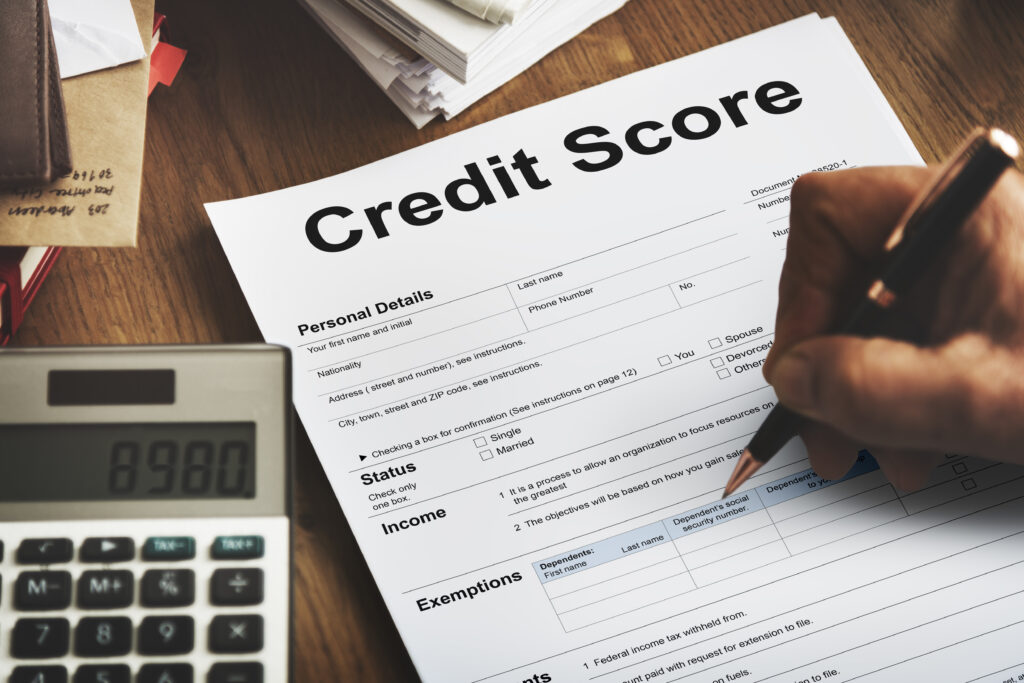Understanding the credit score: its types, factors, and importance
Have you ever wondered why some businesses are able to secure loans on more favorable terms, while others struggle with higher interest rates or more stringent lending conditions? Moreover, what makes one company more creditworthy than another, and how do lenders determine which businesses they can trust to repay their debts? Ultimately, these questions often come down to a crucial but sometimes overlooked factor: a business’s credit score, also known as a credit score for business.
A credit score for businesses functions much like the credit score individuals have, except that it’s tailored to assess the financial health, reliability, and trustworthiness of a company. In fact, it plays a critical role in shaping the terms and conditions of loans and other forms of credit. As a result, lenders and suppliers use this score to evaluate the risk of extending credit or offering financing. A high credit score can mean access to more capital at lower interest rates, whereas a low score can lead to difficulties in securing funds or unfavorable lending terms.
But why is this number so important in the corporate world? A business’s credit score doesn’t just impact borrowing – it can affect relationships with suppliers, partners, and even customers, influencing everything from growth opportunities to overall financial stability.
In this blog post, we will explore what a business credit score is, how it works, the key components and calculation methods, and its importance. Additionally, we’ll cover practical tips to improve your credit score and debunk common myths.
History
The concept of credit scoring has evolved significantly over time. Initially, lending decisions were based on personal relationships and subjective judgment. This changed in the mid-20th century with the introduction of more systematic methods.
The beginning of credit scoring
In 1956, engineer William R. Fair and mathematician Earl J. Isaac founded Fair, Isaac, and Company (now known as FICO). They developed the first credit scoring system, which used statistical methods to predict a borrower’s likelihood of defaulting on a loan. This innovation marked the beginning of the modern credit-scoring era, shifting the focus from personal relationships and subjective judgment to more objective and systematic methods of credit evaluation.
Widespread adoption
Throughout the 1980s and 1990s, credit scoring became more widespread as technology advanced and more data became available. In 1989, FICO introduced the FICO score, which quickly became the United States’ industry standard. Other models, like VantageScore, were developed later to offer alternatives to the FICO score.
Global use
Today, credit scores are used globally, although the specific models and their applications can vary by country. Adopting credit scoring systems has streamlined lending processes and made credit more accessible to a broader population.

What Is a Credit Score?
A credit score is a number that reflects an individual’s or business’s creditworthiness, indicating financial responsibility. Specifically, it is based on data from credit reports, which summarize credit history. Moreover, factors like payment history, total debt, credit length, account types, and recent credit inquiries all influence the score. These elements, in turn, help lenders evaluate financial behavior and predict the likelihood of timely debt repayment.
For businesses, a good credit score can significantly improve access to funding, credit, and better supplier terms. Similarly, for individuals, it directly affects important financial decisions like mortgages, loans, insurance rates, and rental applications. Ultimately, lenders rely on credit scores to assess risk and gauge borrower reliability, thereby promoting responsible lending and borrowing.

Aspects of Credit Score
There are two aspects to consider: personal and business credit scores.
Personal Credit Score
A personal credit score typically ranges from 300 to 850 and is based on an individual’s credit history, payment history, amounts owed, length of credit history, new credit, and types of credit used. A good personal credit score can influence loan approvals, interest rates, and credit card offers.
Credit Score Ranges for Businesses
Companies in this range usually cannot secure any form of credit.
Business credit scores range from 0 to 100: The higher the score, the better a company’s creditworthiness is perceived by lenders and financial institutions.
Excellent (80-100):
Companies in this range are at low risk of default.
They consistently pay their bills on time.
They maintain strong financial health.
These businesses typically secure favorable loan terms and are highly attractive to lenders.
Good (60-79):
Businesses may have occasional late payments but are still considered financially sound.
They are seen as stable, though their loan terms might be slightly less favorable than those of “excellent” companies.
Fair (40-59):
Indicates moderate financial risk and some instability.
Companies may face stricter loan terms due to perceived risks.
Poor (20-39):
High debt and frequent missed payments are common.
These businesses often have public records that negatively impact their creditworthiness, making it harder to obtain credit.
Very Poor (0-19):
Severe financial problems, such as significant debt and numerous missed payments.

Components of a Business Credit Score
Several key components determine a business’s credit score, each reflecting different aspects of a company’s financial behavior. Understanding these components can help businesses manage and improve their credit scores.
1. Payment History
Payment history undoubtedly stands as the most critical component when evaluating a business’s credit score, accounting for a substantial portion of the overall assessment. Specifically, this factor considers the consistency and reliability with which the business fulfills its financial obligations, encompassing the timely settlement of bills, invoices, and loans. When a business regularly pays its creditors on time, or even ahead of due dates, it clearly showcases strong financial discipline and operational reliability, ultimately earning a higher credit score. On the other hand, any delays—such as late payments, missed payments, or accounts sent to collections—reflect negatively on the business, therefore potentially leading to a significant drop in credit score.
2. Credit Utilization
Credit utilization is a vital metric that assesses the ratio of credit a business uses compared to its total credit limits. A high ratio may indicate over-reliance on borrowed funds, posing risks to lenders. Conversely, a low ratio reflects responsible credit management, enhancing financial stability and creditworthiness.
3. Length of Credit History
The length of a business’s credit history significantly influences its credit reliability. Generally, companies that have managed their credit and financial obligations for a longer time are viewed as more trustworthy by lenders and credit agencies. Those with established credit histories typically enjoy higher credit scores, reflecting their record of timely payments and responsible credit usage. In contrast, newer businesses or those lacking a comprehensive credit history often start with lower scores due to insufficient data on their financial practices. To improve their credit over time, these companies should focus on timely payments and responsible credit use.
4. Public Records
Negative public records can severely impact a business’s credit score, leading to lasting repercussions for its financial health. For instance, these records include bankruptcies, liens, and judgments, which indicate significant financial issues and signal risk to lenders. Specifically, bankruptcy reflects a failure to meet financial obligations, thereby raising concerns about stability. In addition, liens and judgments show that creditors have taken legal action to recover debts, further damaging the company’s reputation. Moreover, such records can remain on a credit report for seven to ten years, ultimately affecting creditworthiness and limiting access to financing for essential operations and growth opportunities. Therefore, businesses must manage their financial responsibilities carefully to maintain a positive credit profile.
5. Business Financials
Financial statements are critical components in assessing a business’s overall financial health and play a pivotal role in determining its credit score. Key financial metrics such as revenue, profit margins, and cash flow provide insights into a company’s operational effectiveness and financial stability. For instance, a consistent increase in revenue reflects strong sales performance and market demand, which are positive indicators for lenders. Similarly, healthy profit margins suggest that a business is not only generating income but also managing its costs effectively, further enhancing its attractiveness to creditors. Cash flow, on the other hand, is crucial because it indicates the liquidity of a business, showcasing its ability to meet short-term obligations and sustain operations. When these financial indicators demonstrate strength and stability, they collectively contribute to a higher credit score, ultimately positioning the business more favorably for securing financing and favorable loan terms in the future.
6. Company Size and Industry Risk
Larger companies with stable financial backgrounds typically have better credit scores than smaller firms due to consistent revenues, strong asset bases, and effective management. This stability makes them lower-risk borrowers, enabling access to favorable credit terms like lower interest rates and higher limits. In contrast, businesses in high-risk industries, such as construction and hospitality, often struggle with good credit scores due to unpredictable cash flows and economic uncertainties. Companies with inconsistent financial histories may find it difficult to build a strong credit profile, facing challenges in securing loans and financing, hindering their growth.
Types of personal credit scores
Lenders and financial institutions use various types of scores to assess creditworthiness. Understanding these different scoring models can provide insights into how credit is evaluated. Here are the main types:
FICO score
The FICO score is commonly used for credit scoring in the United States. Fair Isaac Corporation developed it, and it ranges from 300 to 850. The score is based on payment history, credit utilization, length of credit history, new credit, and credit mix. Various versions of FICO scores are designed for specific industries like auto lending or mortgage lending.
VantageScore
Created collaboratively by the three major credit bureaus (Experian, Equifax, and TransUnion), VantageScore provides another perspective on creditworthiness. It ranges from 300 to 850 and uses factors similar to FICO but may weigh them differently. VantageScore has become increasingly popular among lenders and is used in conjunction with or as an alternative to FICO scores.
Industry-specific scores
Specific industries, such as auto lending and mortgage lending, may use specialized credit scores tailored to their needs. These scores may emphasize factors relevant to the industry, such as payment history on auto loans or mortgage accounts.
Custom scores
Some lenders develop proprietary scoring models based on specific criteria and data analytics. These custom scores are used internally to assess credit risk and may not be disclosed to consumers.
Types of business credit scores
Business credit scores are crucial for assessing a company’s financial health and creditworthiness. They significantly influence loan approvals, supplier relationships, and business opportunities. Understanding the different types of business credit scores can help businesses manage their credit profiles effectively and improve their chances of accessing favorable financing and terms.
Dun & Bradstreet payday score
Dun & Bradstreet (D&B) offers the PAYDEX score, which ranges from 0 to 100. It evaluates a business’s payment history with suppliers and vendors. A higher score indicates better payment performance.
Experian intelliscore
Experian provides businesses with an Intelliscore ranging from 1 to 100. It assesses credit risk based on payment history, credit utilization, public records, and business demographics.
FICO small business scoring service (SBSS)
The FICO SBSS score ranges from 0 to 300. Lenders use it to evaluate the creditworthiness of small businesses, considering factors like personal credit scores, business financials, and payment history.
Equifax business credit score
Equifax offers a range of business credit scores that assess credit risk and payment behavior. These scores help lenders and suppliers make informed decisions about extending business credit.
Industry-specific scores
Similar to personal credit scores, specific industries may have specialized credit scoring models tailored to their needs. These scores may emphasize industry-specific factors relevant to credit risk assessment.
Importance of business credit scores
A strong business credit score can significantly enhance a company’s ability to grow and succeed by providing access to necessary financial resources and favourable terms.
Loan approval
Like individuals, businesses need good credit scores to secure loans and lines of credit. Lenders use business credit scores to evaluate the risk of lending money to the company.
Interest rates and terms
A higher business credit score can result in lower interest rates and better terms on loans and credit lines, reducing the cost of borrowing.
Vendor relationships
Suppliers and vendors often check business credit scores to decide on credit terms. A good score can lead to more favorable payment terms and discounts.
Insurance premiums
Insurers may use business credit scores to determine premiums for business insurance. A higher score can lower the cost of insurance.
Business opportunities
Some clients and partners may evaluate a company’s credit score before entering into contracts or business relationships, affecting potential opportunities.
How to check credit scores?
Checking the credit score regularly is crucial for understanding your financial health and making informed decisions. This knowledge empowers you to make intelligent financial decisions and achieve your financial goals effectively.
Here’s how you can check your credit score:
Credit bureaus
Contact major credit bureaus such as Equifax, Experian, and TransUnion. They provide credit reports that include your credit score. You can request a free credit report annually from each bureau through AnnualCreditReport.com.
Credit monitoring services
Sign up for credit monitoring services offered by various companies. These services regularly update your credit score and alert you to changes or suspicious activity.

Banking apps and credit cards
Many banks and credit card issuers offer free access to your credit score through their mobile apps or online banking platforms. Check if your financial institution provides this service.
Third-party websites
Several websites and apps provide free credit score checks. Make sure to use reputable sources that protect your personal information.
Credit score platforms
Platforms like Credit Karma, Credit Sesame, and others offer free access to your credit score and tools to track and improve it. These platforms also provide insights into factors affecting your score.
Credit score inquiries
When checking your credit score, ensure you use a method that does not negatively impact your score. Soft inquiries, such as checking your score, do not affect your credit rating.
Factors that influence credit scores
Understanding the factors influencing credit scores is crucial for individuals and businesses aiming to bolster their financial standing. Here’s a breakdown of the critical components:
Payment history (35%)
This is the most critical factor, as it reflects the punctuality of past payments on credit accounts. Delays, defaults, and bankruptcies can drastically reduce a credit score.
Credit utilization (30%)
This metric indicates the amount of available credit currently in use. It’s advisable to keep this ratio under 30% for a healthier credit score.
Length of credit history (15%)
The duration of credit accounts’ activity also matters, with longer histories providing more reliability and thus favorably affecting the score.
New credit (10%)
Opening multiple credit accounts quickly can be perceived as risky, potentially lowering the score temporarily.
Credit mix (10%)
A diverse range of credit types, including credit cards, mortgages, and auto loans, suggests better credit management skills, which can enhance a credit score.
Strategies to improve credit scores
Enhancing a credit score is essential for obtaining better financial terms and reducing loan costs. Here are effective strategies that both individuals and businesses can adopt:
Pay bills on time
Ensuring that all bills, including loans and utilities, are paid promptly is crucial. This practice positively impacts the credit score due to its substantial weight in the scoring model.
Manage credit utilization
Aim to use less than 30% of the available credit limits to maintain a low credit utilization ratio, which is favorable for credit scoring.
Regular credit report checks
Annual checks of credit reports from the major bureaus—Equifax, Experian, and TransUnion—are necessary to correct any inaccuracies that might adversely affect the score.
Be cautious with new accounts.
Frequent opening of new accounts can decrease the average age of all accounts, potentially lowering the score temporarily. New credit should be sought only when necessary.
Diversify credit types
A mix of different credit types demonstrates the ability to manage various credit forms effectively, thus boosting the credit score.
Preserve old credit accounts.
Older credit accounts contribute to a more extended credit history, which benefits the credit score. Keeping these accounts open can be advantageous, even if they are not actively used.
Practice responsible credit habits.
Avoid maxing out credit cards, pay more than the minimum required, and manage debts efficiently to exhibit responsible credit behavior.
How are credit scores used globally?
Credit scoring systems are used all over the world, but they work differently in various countries and regions. Knowing these differences is important for people and businesses that operate internationally. It helps them understand how to apply for credit, learn about local credit practices, and make good financial decisions in different places.
Here’s how credit scores are used globally:
United States
In the United States, lenders use scores like FICO and VantageScore to assess consumer creditworthiness. These scores influence loan approvals, interest rates, credit card offers, and rental and employment decisions.
Europe
European countries often use credit scoring models similar to those in the US, although specific scoring algorithms and data privacy regulations can vary significantly between nations. The European Union’s General Data Protection Regulation (GDPR) has implications for how credit data is collected, stored, and used.
Asia-pacific
Credit scoring systems are gaining prominence in Asia, particularly in rapidly developing economies such as China and India. These systems help lenders evaluate credit risk as consumer and business credit markets expand.
Latin America
Credit scoring in Latin America varies widely by country, influenced by local financial systems and regulations. Some countries have centralized credit bureaus, while others rely on proprietary scoring models developed by individual lenders.
Africa
In Africa, credit scoring systems are evolving to support financial inclusion efforts and expand access to credit. Many countries are developing national credit bureaus and adopting standardized scoring models to enhance lending practices.
Misconceptions and controversies related to credit scores
Despite their widespread use, credit scoring systems face criticism and controversies. Some of them are,
Lack of transparency
Many people find credit scoring systems difficult to understand, as the exact methods used to calculate scores are often not disclosed.
Bias and discrimination
There are concerns that credit scoring can be biassed, potentially discriminating against certain groups based on factors like income, race, or age.
Accuracy and errors
Credit reports can contain errors that negatively impact scores. Correcting these mistakes can be a challenging and time-consuming process.
Privacy concerns
The collection and use of personal financial data for credit scoring raise privacy issues, with individuals worried about how their information is stored and used.
Limited context
Credit scores often don’t account for individual circumstances, such as sudden medical expenses or temporary job loss, which can unfairly lower scores.
Impact on financial inclusion
Some argue that strict credit scoring criteria can exclude individuals and companies with limited credit histories or unconventional financial situations, limiting their access to credit and financial services.
Influence of negative information
Negative information, such as missed payments or defaults, can significantly impact credit scores for extended periods, even if the circumstances were temporary or resolved.
Regulatory concerns
Regulatory bodies worldwide monitor credit scoring practices to ensure fairness and consumer protection. Data privacy laws, like GDPR in Europe, aim to safeguard consumer information used in credit scoring.
Alternative scoring models
Efforts are ongoing to develop alternative credit scoring models that consider a broader range of data points, such as rental payments, utility bills, or employment history, to provide a more inclusive assessment of creditworthiness.
Addressing these criticisms requires ongoing dialogue among stakeholders, including consumers, lenders, regulators, and credit scoring agencies, to improve transparency, fairness, and accessibility in credit scoring practices.
FAQ’s
What is my credit score?
Your credit score is a number that shows how trustworthy you are with credit. It is based on factors like your payment history, how much credit you use, how long you’ve had credit, the types of credit accounts you have, and recent credit inquiries. Lenders use it to decide if they should lend you money and what interest rates to offer. Regularly checking your credit score helps you keep track of your financial health.
What is a good credit score?
A good credit score typically ranges between 670 and 739, depending on the scoring model (e.g., FICO or Vantage Score). This range suggests to lenders that you are likely to manage credit responsibly and may qualify for competitive interest rates and favorable loan terms.
Who gives credit scores?
Credit scores are generated by credit bureaus such as Equifax, Experian, and TransUnion, as well as by scoring companies like FICO and VantageScore. These organizations compile and analyze information from your credit report to calculate your score.
Who is eligible for a credit score?
Anyone who has used credit, such as by having a credit card, loan, or mortgage, is eligible to have a credit score. Your credit score reflects how well you manage debt and payments.
How to find a credit score?
You can find your credit score by contacting major credit bureaus like Equifax, Experian, and TransUnion or through credit monitoring services. Many banks and credit card issuers also offer free access to your credit score via their apps or online platforms. Third-party websites and credit score platforms like Credit Karma provide free score checks while protecting your personal information.


